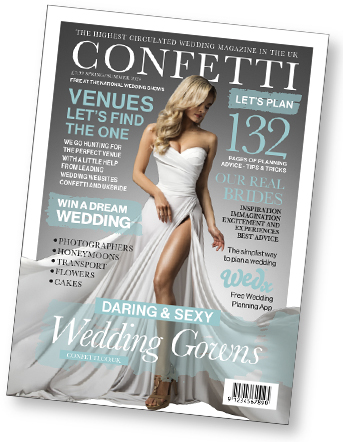Have you just got married or are you in a civil partnership? Maybe your employment situation has changed because of COVID-19? Marriage allowance could save you money – now or in the future. Here are all your marriage tax allowance questions answered…
Most couples have vaguely heard of marriage allowance but don’t actually know what it is or how it works – so we’ve pulled together your ultimate guide! After all, you may not be eligible right now, but if your circumstances are changing any time soon, you can still claim – so don’t miss out!

What is marriage allowance?
Marriage allowance is a tax perk available to couples who are married or in a civil partnership.
Marriage allowance allows you to transfer 10% (£1,260) of your personal tax allowance to your husband, wife or civil partner if you earn less than [the personal tax allowance threshold of] £12,570.
This means couples can reduce the tax they pay by up to £252 a year – and can backdate claims for any of the four previous tax years for which they’ve been married, which could be worth over £1,000.
How does marriage allowance work?
To benefit from marriage allowance, the lower earner must apply to HMRC to request any unused personal allowance can be transferred to their spouse.

Who qualifies for marriage allowance?
You can benefit from marriage allowance if all the following apply:
- You’re married or in a civil partnership
- You do not pay income tax or your income is below your personal allowance (usually £12,570)
- Your partner pays income tax at the basic rate, which usually means their income is between £12,571 and £50,270 before they receive marriage allowance
Married couples may have experienced a change in their circumstances which could now mean they are eligible for marriage allowance. These changes include:
- A recent marriage or civil partnership
- One partner has retired and the other remains working
- A change in employment due to COVID-19
- A reduction in working hours which means their earnings fall below their Personal Allowance
- Unpaid leave or a career break, or
- One partner is studying or in education and not earning above their Personal Allowance
More than 2 million couples are already using the service. It is free, quick and easy to apply, just search ‘marriage allowance’ on gov.uk.
Can marriage allowance be backdated?
Yes, marriage allowance can be backdated. If you know someone who got married years ago, was eligible, and never claimed, you can let them know that claims can be backdated by any of the four previous tax years for which they’ve been married – meaning a nice little windfall of over £1,000.
Is marriage allowance taxable?
No, marriage allowance is a way of paying less tax if one partner is not using all or any of their personal allowance.
It’s quick and free to apply for marriage allowance. The easiest way for taxpayers to check eligibility and make a claim to receive 100 per cent of the relief they are entitled to is via the gov.uk website here. Apply direct from HMRC to avoid paying commission to third parties.


